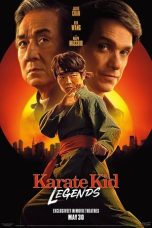White Oleander (2002) Movie Review: A Powerful Tale of Resilience and Identity
White Oleander, directed by Peter Kosminsky and released in 2002, is a poignant drama based on the novel by Janet Fitch. The film explores themes of identity, resilience, and the impact of a troubled upbringing through the story of a young girl navigating the foster care system after her mother is imprisoned for murder.
Plot Overview
The film centers on Astrid Magnussen (Alison Lohman), a teenage girl whose life changes dramatically when her mother, Ingrid (Michelle Pfeiffer), is convicted of murdering her boyfriend. Ingrid, a cold and calculating artist, has a profound influence on Astrid’s life, shaping her understanding of love and self-worth.
After Ingrid’s imprisonment, Astrid is placed into the foster care system, where she experiences a series of challenging and diverse placements. Each foster home provides a different perspective on life, and Astrid’s journey is marked by a series of difficult trials that test her resilience and shape her identity. From living with a wealthy but emotionally detached family to a troubled household with its own issues, Astrid’s experiences reflect the complexities of navigating a system that often feels indifferent to her well-being.
Characters and Performances
Michelle Pfeiffer stars as Ingrid Magnussen, delivering a powerful performance that captures the character’s complex nature. Pfeiffer’s portrayal of Ingrid is both mesmerizing and chilling, presenting a character who is simultaneously alluring and emotionally distant. Ingrid’s influence on Astrid is central to the film’s exploration of familial bonds and the impact of a troubled upbringing.
Alison Lohman plays Astrid Magnussen, and her performance is both vulnerable and resilient. Lohman effectively conveys Astrid’s emotional turmoil and growth as she navigates her challenging circumstances. Her portrayal captures the character’s evolution from a naive and dependent teenager to a strong and self-reliant individual.
Renée Zellweger appears as Starr, a pivotal figure in Astrid’s life. Zellweger’s performance adds depth to the character and contributes to the film’s exploration of different aspects of life in the foster care system. Her role highlights the varying dynamics of Astrid’s relationships and the impact of her experiences.
Robin Wright plays Claire Richards, a wealthy and emotionally detached foster mother. Wright’s performance adds complexity to the film’s depiction of foster care, illustrating the challenges and disconnects that can arise in such environments.
Cole Hauser and Peter Sarsgaard also deliver memorable performances, each contributing to the film’s rich tapestry of characters and experiences. Their roles add layers of depth and nuance to the story, enhancing the overall narrative.
Direction and Cinematography
Peter Kosminsky’s direction of White Oleander is characterized by its emotional depth and visual storytelling. Kosminsky effectively captures the stark contrasts between the different environments Astrid encounters, using visual cues to underscore the themes of isolation, disconnection, and self-discovery.
The cinematography, by Robert Elswit, enhances the film’s mood with its use of color and light. Elswit’s work captures the various settings with a blend of realism and artistic flair, contributing to the film’s ability to evoke emotional responses from the audience.
Themes and Symbolism
White Oleander delves into themes of identity, resilience, and the search for belonging. The film examines the impact of familial relationships on personal development and the ways in which individuals cope with adversity. Astrid’s journey through the foster care system serves as a lens through which the film explores the broader themes of self-discovery and personal growth.
The title itself, “White Oleander,” symbolizes the duality of beauty and danger. The white oleander plant is visually striking but highly toxic, mirroring the film’s exploration of appearances versus reality and the complex nature of human relationships.
Reception and Legacy
White Oleander received generally positive reviews from critics, who praised the performances, particularly those of Michelle Pfeiffer and Alison Lohman. The film’s exploration of challenging themes and its emotional depth were noted as strengths, although some critics found the narrative’s pacing and structure to be uneven.
The film has garnered a following for its powerful portrayal of personal struggle and the impact of a troubled upbringing. Its exploration of the foster care system and the search for identity continues to resonate with audiences, making it a notable entry in the drama genre.
Where to Watch White Oleander Online
For those interested in watching White Oleander, it is available on several streaming platforms and rental services:
1. Amazon Prime Video
- Availability: Rent or Buy
- Price: Rent starting at $3.99; Purchase at $12.99
- Details: Available in HD with options to rent or buy.
2. Apple TV
- Availability: Rent or Buy
- Price: Rent starting at $3.99; Purchase at $12.99
- Details: Available for rent or purchase in HD.
3. Vudu
- Availability: Rent or Buy
- Price: Rent starting at $3.99; Purchase at $12.99
- Details: Available for streaming in HD with rental and purchase options.
4. Hulu
- Availability: Streaming with Subscription
- Details: Availability may vary, check Hulu’s library for current status.
Conclusion
White Oleander (2002) is a powerful drama that explores the complexities of identity, resilience, and the impact of a troubled upbringing. Directed by Peter Kosminsky and featuring strong performances from Michelle Pfeiffer and Alison Lohman, the film offers a poignant and emotionally resonant narrative. Its exploration of the foster care system and personal growth makes it a notable and impactful entry in the drama genre, appealing to viewers interested in stories of personal struggle and triumph.

















